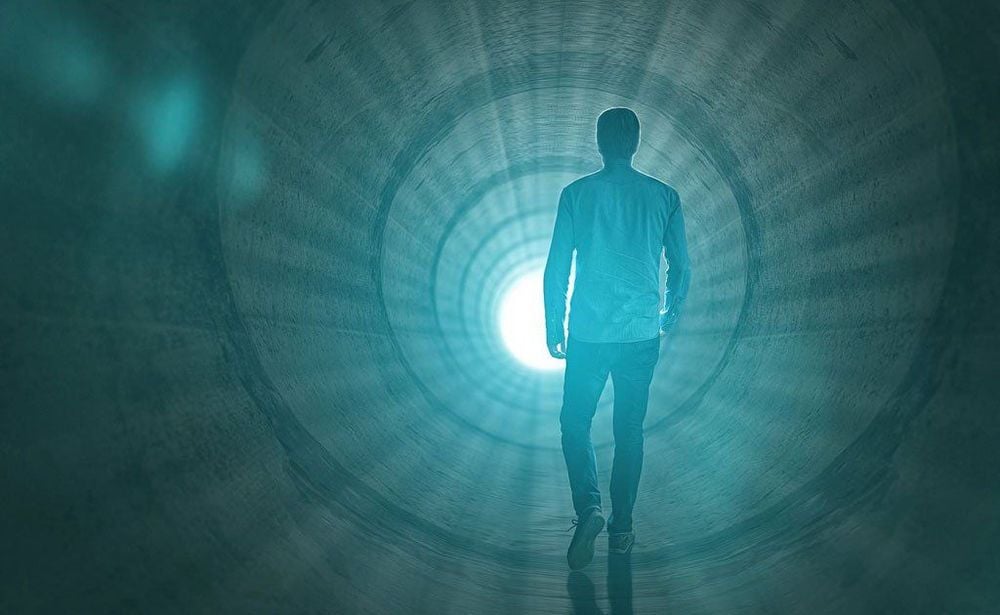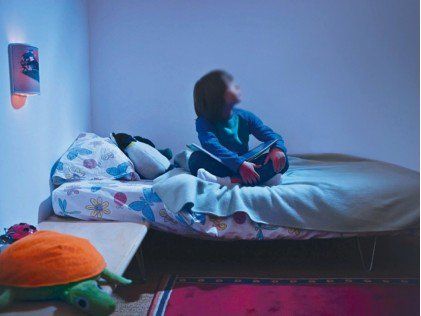This is an automatically translated article.
Near-death experiences can range from intense, peaceful, to as if floating in the air. However, whatever it is, the near-death sensation changes the body's sleep in some way.
1. The link between near-death experiences and sleep paralysis
For neuroscientists, near-death experiences have a purely neurological basis. According to the results of the new studies, such near-death feelings may be similar to what happens in the brain in certain forms of sleep disorders.
Dr Daniel Kondziella, a neuroscientist at the University of Copenhagen, said: 'I have a hypothesis that near-death experiences can occur when the brain is still functionally and structurally intact. He is the lead author of a new study on near-death experiences presented at the European Academy of Neurology Congress. His findings are new but have yet to be published in a journal, suggesting that typical signs of such phases, such as white light and feelings of peace, are most likely to be the result of neural activity in the brain, similar to what happens in a phenomenon known as sleep paralysis.

Trải nghiệm cận tử thường đa dạng, có thể là dữ dội hoặc bình yên
Kondziella also thinks that these near-death experiences can be triggered in situations where actual death is imminent. However, while being aware of these experiences, the brain network is working hard to be able to store, resuscitate, retrieve those memories and let instincts know how to choose life.
To uncover this, Kondziella's study was based on questionnaires answered anonymously by 1,034 online participants. The questionnaires began with a single query: Have you had a near-death experience?
The definition of such an experience is indeed very broad. By any conscious perceptual experience, including emotional, personal, spiritual, and/or mystical experience, occurring in a person near death or in situations of physical danger. physical or emotional. Because the answers came from anonymous individuals, the researcher could not confirm the accuracy of any of the responses.
However, researchers found that as many as 106 people (about 10% of respondents) reported near-death experiences as "real". Furthermore, participants who reported near-death episodes also had a history of prolonged sleep disturbances and vivid dreams, known as REM (rapid eye movement) sleep.
On the other hand, says Dr. Kevin Nelson, a neuromuscularist at the University of Kentucky, "REM is the type of sleep during which most vivid dreams are occurring." Besides, there are only 3 states of consciousness in which the brain can exist: awake, asleep, or with REM. Therefore, in REM sleep, when a person is dreaming, although seeing the scene happening around them very clearly, most of the muscles in the body are paralyzed so it does not happen physically. Normally, a switch in the brain allows people to move seamlessly from one state of consciousness to another. But sometimes, that switch doesn't work properly, allowing REM sleep and wakefulness to blend. At this point, elements of the REM system occur while a person is essentially awake. The person may wake up but be paralyzed and unable to move. Hallucinations can also occur and the person is usually very frightened. Those things can be called near-death feelings if you have a nightmare.
2. Are near-death experiences real? Despite the results of Kondziella's survey, some other experts still cast doubt on the study and, in particular, found that one in 10 people has experienced near-death experiences.
Dr Donn Dexter, a member of the American Academy of Neurology and a neuroscientist with the Mayo Clinic Health System, thinks people are misreporting sleep events as near-death experiences. However, Kondziella was quick to defend what people experience as near-death episodes, which are often reported as life-changing and spiritually significant. “As a scientist, I think there is a suitable biological mechanism explanation,” he said. All neuroscientists agree that there is room for both science and belief in the same near-death experience.”
3. What do near-death experiences link to sleep? It happened 32 years ago, but Kay Bjork can still vividly recall the near-death experience she had after emergency surgery to repair a ruptured fallopian tube due to an unsuccessful ectopic pregnancy. timely diagnosis. She remembered clouds of orange light, seeing everyone in the recovery room but feeling that they were seeing right through her and having a moment of intense clarity.
Bjork is now 70 years old and Bjork's story is very similar to many other stories told by people who believe in having had a near-death experience. Today, new studies are slowly coming up with possible scientific explanations for this. Accordingly, the researchers say that the perception of near-death experiences as most people have experienced may be an inroad into the REM phase of sleep. This explanation is appropriate when "experiences" or "dreams" (rather nightmares) when the sensation is very vivid (can be clearly remembered upon awakening) but does not do anything because it is accompanied by the present. paralysis during sleep.

Trải nghiệm cận tử có mối liên kết với giấc ngủ
4. Mental effects of near-death experiences While the findings suggest that the intrusive REM stage does contribute to the phenomenon known as near-death experiences, Nelson says he's not trying to prove that Psychic influences are irrelevant.
Scientists only consider this study to be mentally neutral. People who have had a near-death experience consistently report that the experience is of great personal and spiritual significance. However, research has simply focused on the manner in which the experience is experienced rather than the mental effects that near-death experiences cause.
In summary, the actual near-death experience rate is about 10%, according to the results of a large sample study. Scientific analyzes show a link between near-death feelings and REM sleep penetration. Although this association is not causal, identifying the physiological mechanisms behind the entry of REM into wakefulness may enhance the professional understanding of near-death experiences. The concept was previously thought to be spiritual and ambiguous.
Please dial HOTLINE for more information or register for an appointment HERE. Download MyVinmec app to make appointments faster and to manage your bookings easily.
References: nbcnews.com, nbcnews.com, webmd.com, ncbi.nlm.nih.gov












